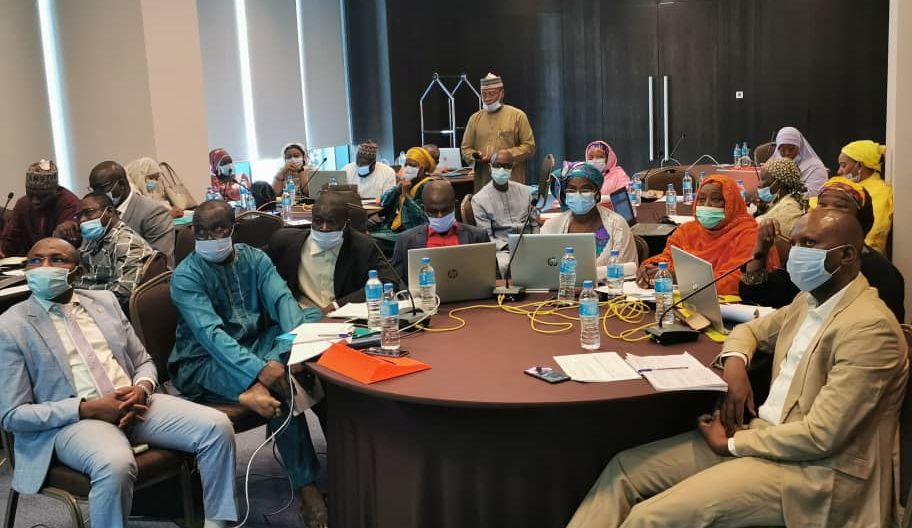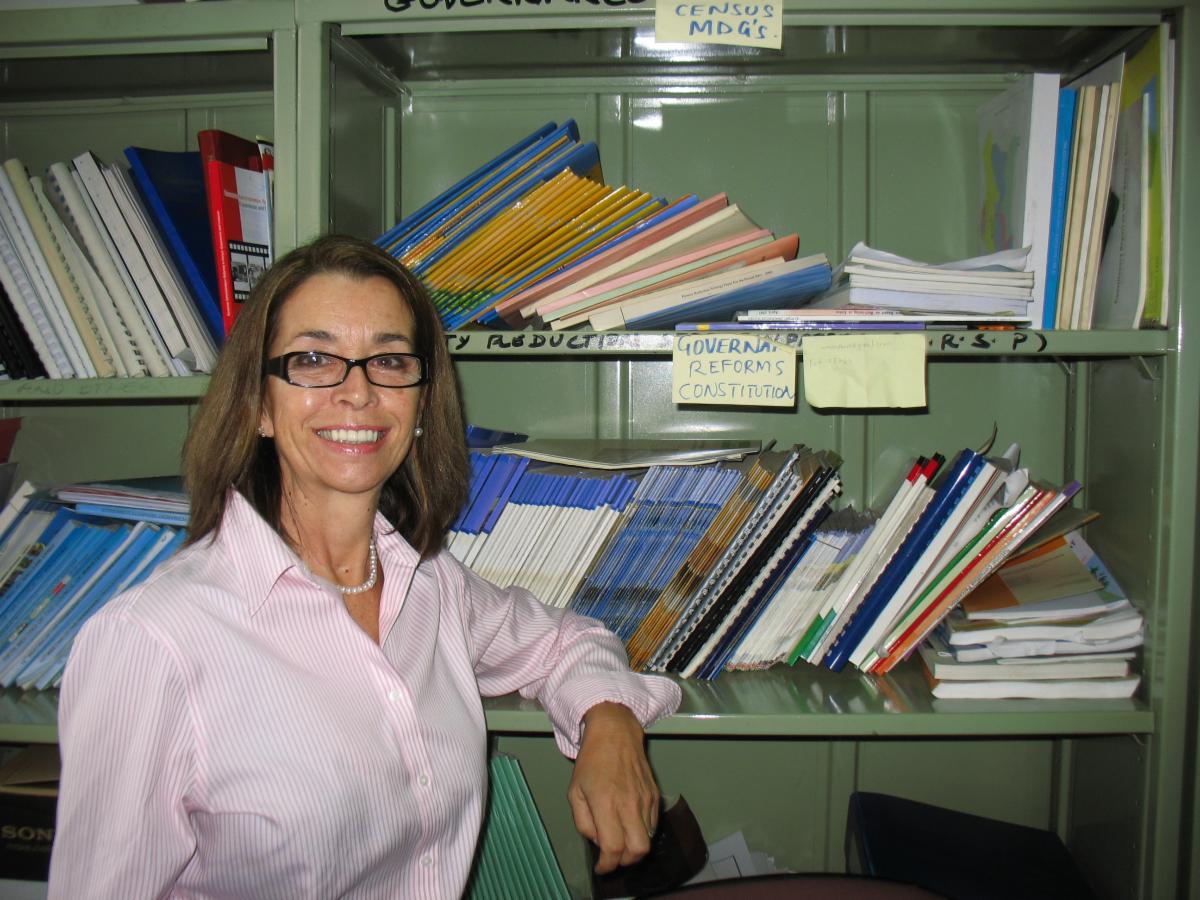Niger: Strengthening the Audit of Public Infrastructure Projects

Members of the Nigerien Supreme Audit Institution. Niamey, Niger, November 2020
The process of auditing large-scale public projects is critical to ensuring that public funds are spent transparently and efficiently.
In early November, FSVC conducted a virtual training for the Nigerien Supreme Audit Institution in auditing large public infrastructure projects. FSVC recruited two volunteer experts from the Tunisian Supreme Audit Institution to present international standards in public auditing, and the steps to audit infrastructure projects. Participants then conducted a mock audit of an infrastructure project and related practical exercises.
As a result of this activity, the Nigerien Supreme Audit Institution is better equipped to conduct a thorough audit of major public infrastructure projects that were recently completed. The auditors will assess if the cost of the project was in line with the budget, if the selection of implementers was done in a transparent fashion, and if the project development timeline was efficient.
FSVC’s program in Niger is funded by the U.S. Agency for International Development (USAID).
Ethiopia: Implementing International Accounting Standards

Addis Ababa, Ethiopia
As a vibrant emerging economy, Ethiopia has embarked on an ambitious plan to reform the public sector through political decentralization and economic liberalization. The public sector’s large size and considerable number of State-Owned Enterprises complicate the challenge, however, and Ethiopia still faces major inefficiencies in public financial management and government transparency.
Since December 2019, FSVC has been implementing a program to improve fiscal transparency and public accountability in Ethiopia, supported by funding from the U.S. Embassy in Addis Ababa. As part of this program, FSVC is assisting the Ethiopian Ministry of Finance and Economic Cooperation (MOFEC) in adopting International Public Sector Accounting Standards (IPSAS). FSVC is developing virtual training modules for MOFEC staff to present IPSAS and international best practices in accrual-based accounting. As Ethiopia is facing challenges linked to the COVID-19 pandemic and low internet bandwidth, FSVC is adapting its technical assistance delivery by providing a blended training approach, including videos, practical exercises and live Q&A sessions.
As a result of this program, Ethiopia is poised to adopt international standards in public accounting, which are critical to the promotion of efficient and transparent public financial management.
Podcast with FSVC and FHI360:Trends and Challenges in the Emerging Market World
Patrick Fine, FHI 360 CEO (left) and Andy Spindler, FSVC President & CEO (right)
In October, FSVC President & CEO Andy Spindler recorded a podcast on FSVC’s work in the field of development finance. The podcast was hosted by Patrick Fine, CEO of FHI 360, a development organization headquartered in Durham, NC. The recording is part of a podcast series called A Deeper Look that Fine has created to explore important development issues. During the 45-mintue broadcast, Spindler and Fine discuss the benefits and challenges of an increasingly interdependent global economy, the disruption to financial markets caused by the COVID-19 pandemic, and what lies ahead for emerging markets.
During the conversation, Spindler notes the much greater global attention being paid today to financial sector governance and transparency, not just in advanced economies but in emerging market countries as well: “Over the last 30 years, important international standards have developed, such as the global standards of the Financial Action Task Force (FATF),” which cover anti-money laundering and combating the financing of terrorism (AML/CFT).
Spindler and Fine also address the phenomenon of “de-risking”, which has caused many financial institutions based in developing countries to lose their access to the global financial system. Spindler notes that, throughout the emerging market world, commercial banks are stepping up efforts to comply with international AML/CFT standards. National governments are also becoming much more aware of the steps they need to take to supervise and enforce those standards and to conduct effective financial-sector supervision more generally.
They also discuss the impact of COVID-19 on the emerging market world. Spindler anticipates that the economic effects of the COVID-19 crisis will be more severe and long-lasting than those of the 2008 financial crisis. Developing countries are facing multiple economic setbacks resulting from reduced demand for their exports, sharp declines in tourism and a significant drop in remittances from the industrial world, among other factors.
The full podcast is available here.
#FSVC30thAnniversary: Interview with Volunteer Expert Julia Mold

Julia Mold during an FSVC project. Nairobi, Kenya, 2011
